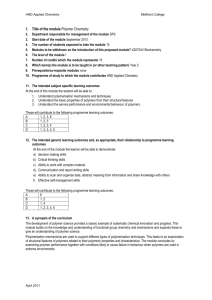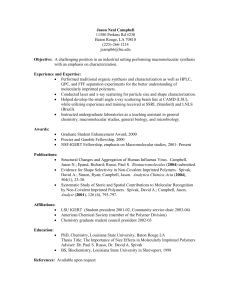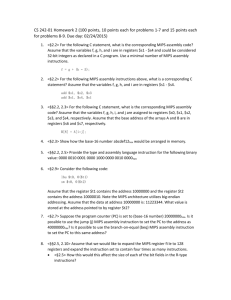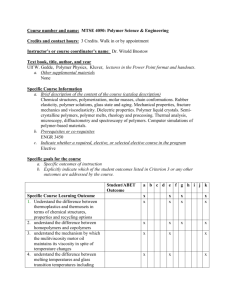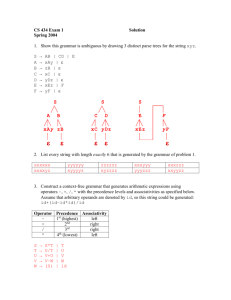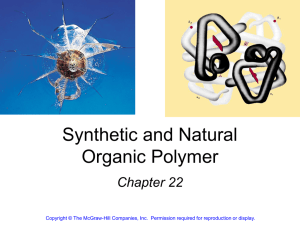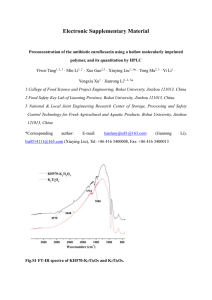Current research topics
advertisement
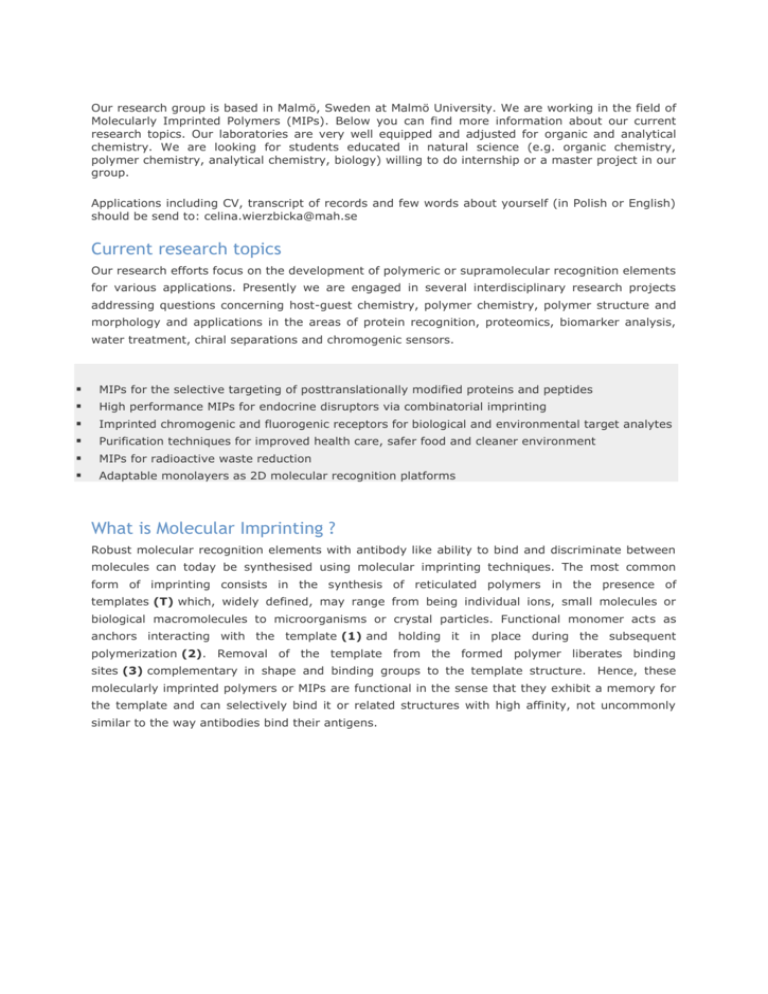
Our research group is based in Malmö, Sweden at Malmö University. We are working in the field of Molecularly Imprinted Polymers (MIPs). Below you can find more information about our current research topics. Our laboratories are very well equipped and adjusted for organic and analytical chemistry. We are looking for students educated in natural science (e.g. organic chemistry, polymer chemistry, analytical chemistry, biology) willing to do internship or a master project in our group. Applications including CV, transcript of records and few words about yourself (in Polish or English) should be send to: celina.wierzbicka@mah.se Current research topics Our research efforts focus on the development of polymeric or supramolecular recognition elements for various applications. Presently we are engaged in several interdisciplinary research projects addressing questions concerning host-guest chemistry, polymer chemistry, polymer structure and morphology and applications in the areas of protein recognition, proteomics, biomarker analysis, water treatment, chiral separations and chromogenic sensors. MIPs for the selective targeting of posttranslationally modified proteins and peptides High performance MIPs for endocrine disruptors via combinatorial imprinting Imprinted chromogenic and fluorogenic receptors for biological and environmental target analytes Purification techniques for improved health care, safer food and cleaner environment MIPs for radioactive waste reduction Adaptable monolayers as 2D molecular recognition platforms What is Molecular Imprinting ? Robust molecular recognition elements with antibody like ability to bind and discriminate between molecules can today be synthesised using molecular imprinting techniques. The most common form of imprinting consists in the synthesis of reticulated polymers in the presence of templates (T) which, widely defined, may range from being individual ions, small molecules or biological macromolecules to microorganisms or crystal particles. Functional monomer acts as anchors interacting with the template (1) and holding it in place during the subsequent polymerization (2). Removal of the template from the formed polymer liberates binding sites (3) complementary in shape and binding groups to the template structure. Hence, these molecularly imprinted polymers or MIPs are functional in the sense that they exhibit a memory for the template and can selectively bind it or related structures with high affinity, not uncommonly similar to the way antibodies bind their antigens. In spite of this advanced function and in contrast to the biological recognition elements, MIPs are remarkably stable against mechanical stresses, high temperatures and pressures, intense radiation, they are resistant against treatment with acid, base or metal ions, and stable in a wide range of solvents. The storage endurance of the polymers is also very high. Furthermore, the polymers can be used repeatedly without loss of their "memory effect". This in addition to the relative ease of producing MIPs have led to a boom in the research and industrial interest in this fascinating class of materials partly with the aim of finding alternatives to the labile biologically derived recognition elements.


